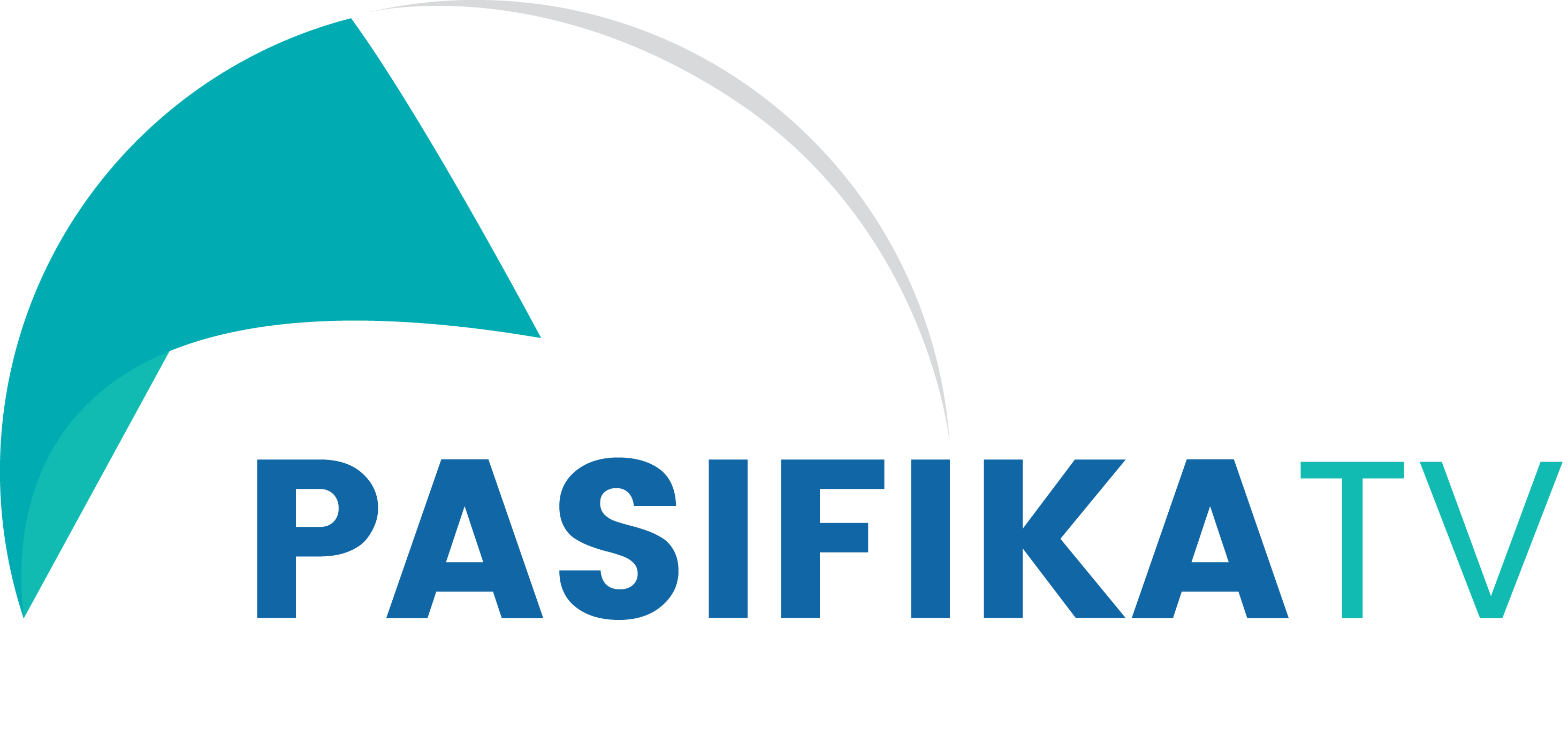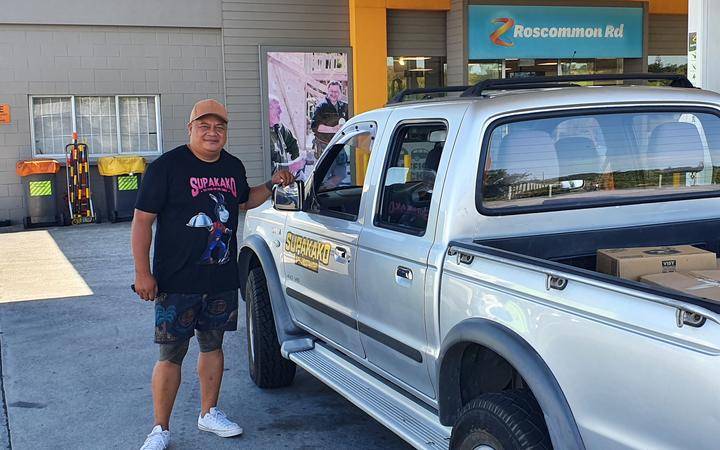
Tuala Tugaloa Tusani is a businessman and community leader who has been delivering necessities to some of the most vulnerable. Photo: RNZ / Matthew Theunissen
The requirement to isolate at home means that tens of thousands of Covid-19 cases and their contacts are relying on family or friends to bring them what they need while they recover.
Without the care once provided by the MIQ system, those without those connections are entirely reliant on community groups, without which they would either have to go hungry or put others at risk by going to the shops … that is, if they can even afford to.
As evident throughout the pandemic, it is those with the least who are suffering the most. And again, it’s South Auckland bearing the brunt of Omicron.
Tuala Tugaloa Tusani is a businessman and community leader whose days are currently spent delivering necessities to some of the most vulnerable members of our community.
Back in September he and his wife, Fiona, feared they were on death’s door when they contracted the virus.
Once he recovered, he dedicated himself to the vaccination campaign, with a focus on South Auckland’s Pasifika community.
With vaccination rates now reassuringly high, his attention has turned to the next great challenge brought by the Omicron outbreak: food.
“We don’t have enough to give out, so we can’t give to all. So today I’ve chosen just the six families with children. That’s all I can do today.”
Our first stop in is in Ōtāhuhu. Like most of the homes we visited, this one’s a small brick and tile unit with six residents.
In the lounge, we can see someone lying under a sheet on the couch, and an older woman on a chair next to them, fanning herself and blowing her nose.
Tuala drops off boxes of food and other necessities and speaks to the family in Samoan, checking how they’re doing.
He said three people have tested positive, including a 15-year-old girl who is very ill.
“This is one of the better [houses] in terms of not being too crowded,” he said.
“It’s just the way [Pasifika] people live. There’s so many of us that live in communal homes like this so if one gets sick the whole household gets sick.”
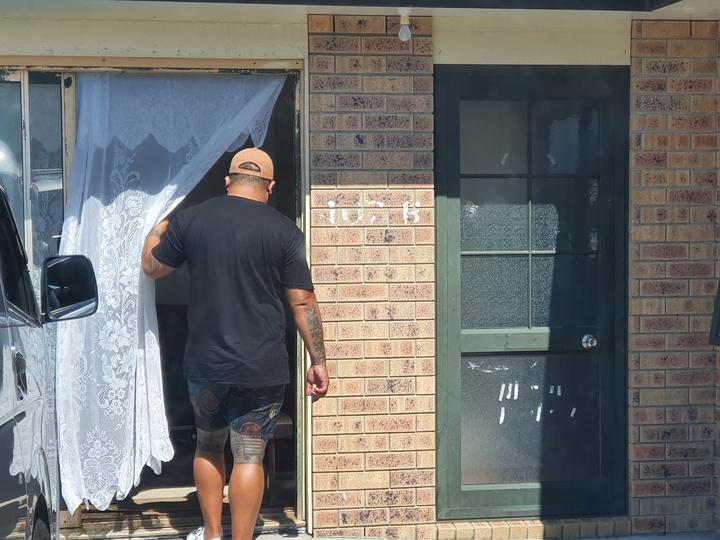

Tuala checks how an Ōtāhuhu family with three positive Covid-19 cases is managing. Photo: RNZ / Matthew Theunissen
Next it’s a house in Manukau. As we pull into the driveway we see a young man brushing his teeth in the back garden.
“That’s a classic picture of isolation – people bathing or showering or brushing their teeth with a bottle of water outside the house,” Tuala said.
Elijah is a university nursing student, who is staying there with his family.
He has tested positive for Covid but has hardly any symptoms.
We spoke to him from a safe distance.
“I was a close contact with a friend of mine from university,” he said. “I just stay inside my room all day [because] I’m not trying to put the family at risk.”
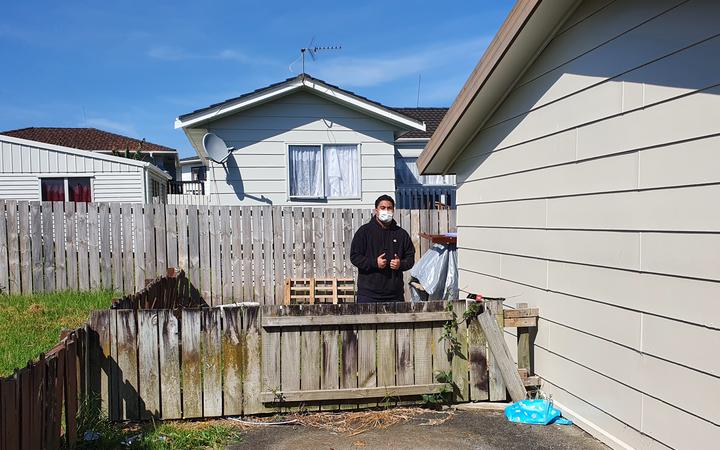

Elijah has tested positive for Covid but has hardly any symptoms. Photo: RNZ / Matthew Theunissen
Tuala’s pandemic started before the rest of us.
In 2019 he was heavily involved in providing resources to assist with the Samoa measles outbreak.
He is worried that the deprivation he witnessed in Samoa at that time will be repeated in South Auckland.
And he is critical of those responsible for making the rules meant to keep everyone safe.
“They’re not in touch with reality, that’s the biggest issue here. Whatever data or information they’re looking at, that’s just pieces of paper. They haven’t been to where these people are living,” he said.
“They’re not seeing first-hand the struggles that these children – the mothers, the fathers, the families – what you’ve seen today. How many of them have seen that and not just been told that by their staff?
“It would be nice for them to actually come out and see the real world – go and see the families that are struggling. Go and see the children that are hungry. Go and see them.”
Tuala Tusani is chair of the Asa foundation, and runs a food export business, Supakako, which is also involved in a large number of charitable initiatives in the Pacific.
Our day out is punctuated by stops to his container yard where they are waiting for pallets of meat and other food that will be shipped to Tonga to help with the relief effort after last month’s volcanic eruption and tsunami.
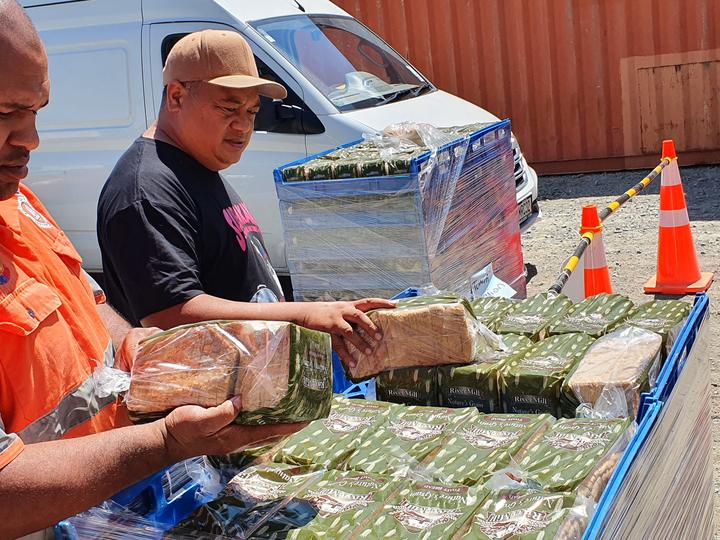

Tuala is also helping with relief to Tonga. Photo: RNZ / Matthew Theunissen
Our next delivery is to a house in Clendon Park. Another brick and tile unit, another family suffering the effects of Covid-19.
This time, a child has tested positive and the family is isolating.
We spoke to the child’s father over the fence, who said the boy seems to be fine now.
“We’re feeling all good, we’re just waiting on our results. [Having to isolate] means no work because I’m self-employed,” he said.
The parents have not been vaccinated.
“It’s just questions come up when they start pushing the mandates, you know?”
Next we leave a food parcel on the driveway of a small unit in Manukau.
There is a man slumped on a chair by the sliding door leading to the lounge. He’s got Covid and does not look at all well.
“He’s completely lost,” Tuala said. “You can see his children looking in from the other window and he’s trying to keep them from coming to see him.”
Just as we pull out of the driveway, he gets a call asking for a food parcel to be delivered to a home in Ōtara where residents are isolating after one of them tested positive.
He writes the address into his delivery book.
But first Tuala wants to stop by at his family home to attend to some business there.
When we arrive his sister meets him on the driveway. She’s got news.
“I just came home to see if my mum can help me finish off some of my runs so I could follow up on the meat supply for Tonga,” he said.
“My sister’s just come out and says she’s now tested positive.”
But it’s onwards to the Ōtara job, where eight people are isolating.
After leaving groceries at the gate, we spoke on the phone to one of the residents, Nara.
“I think [we got Covid] from my partner at his job because he’s the one who tested positive and that’s why we all got tested, so we’re all just at home.”
She said they do not have many contacts in the area and if it was not for Tuala’s food delivery, they would struggle to put food on the table.
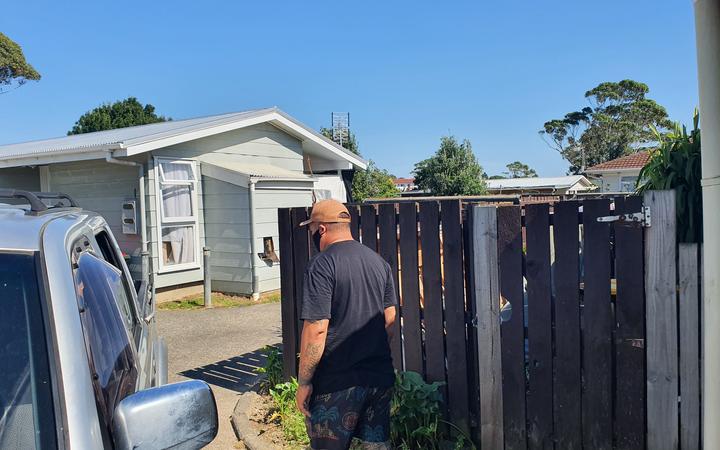

Tuala continues his deliveries to those stricken by Covid, this time it’s to Ōtara. Photo: RNZ / Matthew Theunissen
When Tuala and his wife caught Covid, he was frustrated by how difficult it was to get medical care – being told to take Panadol when it was clear to him they needed to be in the hospital.
But they did eventually get the treatment that saved their lives.
“I was blessed in the way I was able to get some hospital care. These kids that you’re seeing now are just dependent on whatever care they can get at home.
“With adults infected as well I’m not sure what level of care [they’re] going to get.”
If they had caught Covid a few months ago all of these cases would be in managed isolation facilities now with around-the-clock access to care.
“They would have had all the care in the world that our great country usually provides. But I see that our beds are reaching full occupancy across the country at the moment.”
With so many people now having to isolate at home, many without the means to reach out for help, he is seriously concerned that people will die because they cannot access the treatment they need.
Source: RNZ
